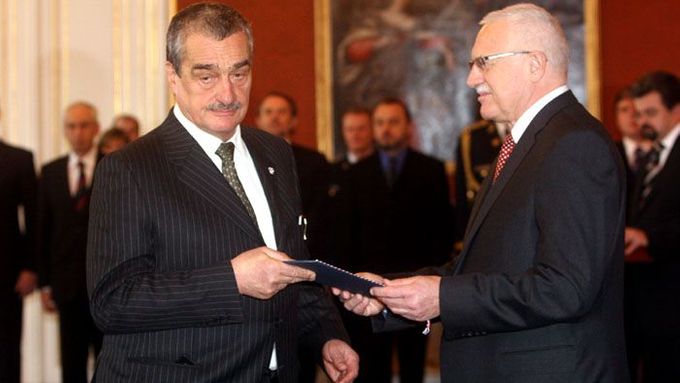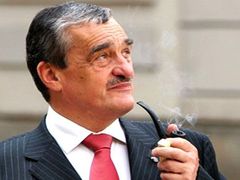Vienna - Czech Foreign Minister Karel Schwarzenberg said in an interview for Saturday's edition of Austrian daily Der Standard that Czech President Václav Klaus is critical of the EU because he does not fully understand how it works.
"Václav Klaus is a man of strong opinions. As every critic, he is right in some points. But I have a feeling that he is not acquainted with the overall EU reality," said the minister.
In an earlier interview for Austrian radio station Ö1 Schwarzenberg said that, when it comes to EU issues, the Czech president lives with his "head in the clouds".
The Minister told Der Standard the EU should unite to fight the global financial crisis. He also dismissed some European politicians' misgivings about the Czech Republic's ability to preside over the EU in the first half of 2009.
"Let's not harbour any illusions: In mid-2009 the situation will be ugly. And then we will see whether the EU institutions work, or not. That's a job not only for the presiding country, but also for the EU Council and the European Commission," said Schwarzenberg.
Breaking one's leg
He called for restraint in tackling the global crisis. "If someone breaks his leg, it is right to give him a cast to stabilise the limb; but if the person wears the cast too long, the muscles will fail, which can have life-long consequences."
The Minister also dismissed concerns about delays in the ratification of the Lisbon Treaty in four member states, including the Czech Republic.
"In my interpretation, only one country has rejected the treaty: Ireland," he said. "A majority of the Czech legislators are in favour, but it is now the Constitutional Court's turn. If it approves the treaty, it should be also signed by President Klaus - although lawyers differ in their opinion whether his signature is necessary at all. The situation in Poland and Germany is similar. So it is now for Ireland to decide."
In the Minister' s view the Irish government is in a very "difficult situation" because voters in referendums usually vote about the government that is posing the question than about the question itself.










